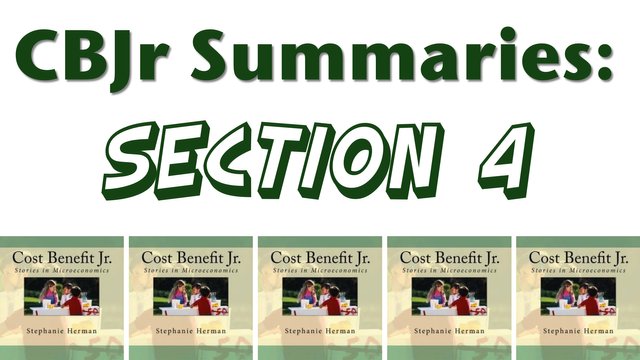
If you wanted to teach some basic microeconomic ideas to a child, you probably wouldn't give them a textbook. You'd tell them a story. Cost Benefit Jr.™: Stories in Microeconomics engages young children in a literature-based format. Students as young as eight can learn complex concepts like supply & demand, opportunity cost, and diminishing marginal utility when they’re presented in simple stories. Each weekly story and quiz will take the average 4th grade student 20 to 30 minutes to read and complete. The curriculum is meant to cover a normal school year and is ideal for homeschoolers or as a quick & easy supplement to classroom learning.
Section 4: The Friendship Market: Negotiating for Limited Resources
In the fourth section of Cost Benefit Jr.™, students are shown how friendships are a series of negotiations. Sharing, for example, assumes ownership and is only a meaningful gesture because the resources a child shares are limited. This reality, taught young, will help kids avoid the illogical conclusion many people draw that sharing is an act of socialism.
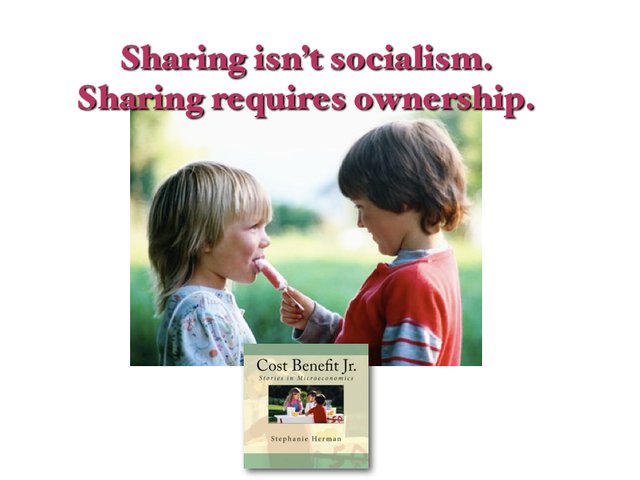
In fact, friends, themselves, are limited resources. As such, we need to base our behavior and our decisions on preserving our friendships.
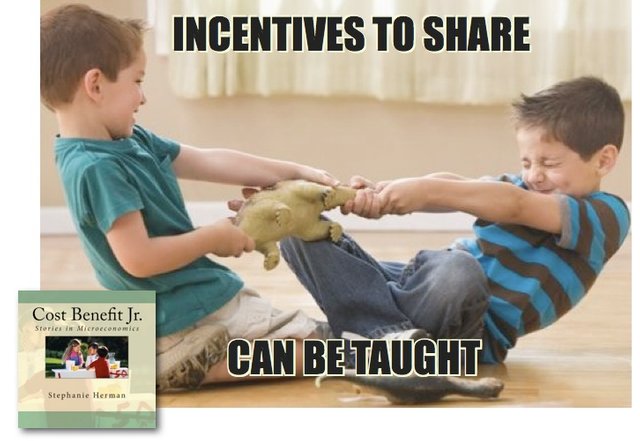
In Lesson 18, a friendship is challenged as Tammy weighs the costs and benefits of lying to her friend, Erin, for financial reasons. The lesson summarizes: “But it's still a choice. If Tammy didn't care about being a good friend and didn't respond to friendship-based incentives, she could value... her money more than she values Erin.”
Greedy L. McMeanie, not surprisingly, doesn't like to share. But he learns that people can move ahead faster when they share limited resources. Sharing, it turns out, isn't just being a good friend; it's being a good capitalist.
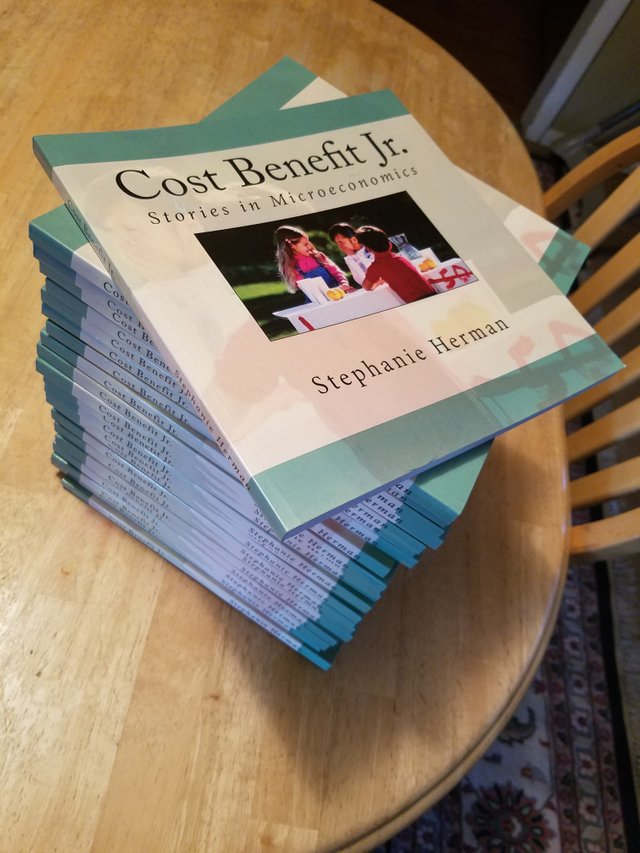
We're counting down to the contest for five free copies of Cost Benefit Jr.™! People can enter the contest after this series of summaries of the book's eight sections.
Contest entries will happen in the comments, so be thinking about a comment you can submit in the contest announcement post explaining what you'd like to teach your kids, your grandkids, or yourself about economics and decision making. Stay tuned!

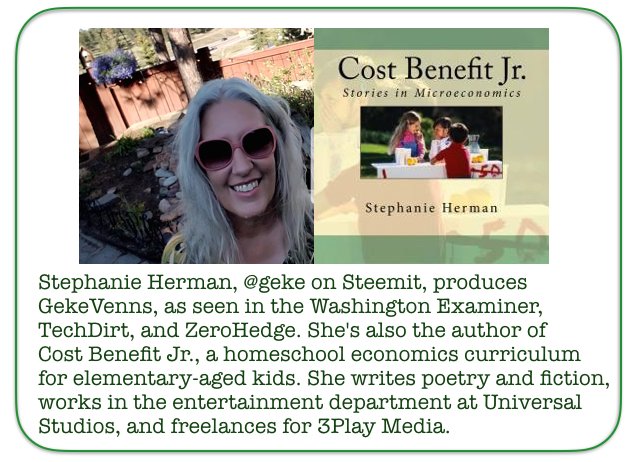
great homeschool resource for libertarians!
Downvoting a post can decrease pending rewards and make it less visible. Common reasons:
Submit
I had missed the other section summaries, but from the sound of this one, this is great!
We homeschooled up until last year and may start again next year. Either way, I will look into this resource more. Def something we can/could/will use!!
Thanks!
(And I'm gonna be sure and keep my eyes open for the contest! We have 4 kids that could benefit!)
Downvoting a post can decrease pending rewards and make it less visible. Common reasons:
Submit
That's a really interesting concept- that sharing implies ownership, and therefore it makes economic sense to share in order to create relationships. I wonder how much of this would also be useful in teaching general social skills to students.
Downvoting a post can decrease pending rewards and make it less visible. Common reasons:
Submit
Friendship Market all section it's awesome,
thanks for sharing
@followed and upvoted for you
Downvoting a post can decrease pending rewards and make it less visible. Common reasons:
Submit
This post has received a 23.70 % upvote from @buildawhale thanks to: @geke. Send at least 1 SBD to @buildawhale with a post link in the memo field for a portion of the next vote.
To support our daily curation initiative, please vote on my owner, @themarkymark, as a Steem Witness
Downvoting a post can decrease pending rewards and make it less visible. Common reasons:
Submit
img credz: pixabay.com
Nice, you got a 80.0% @peaceandlove upgoat, thanks to @geke
It consists of $16.64 vote and $5.55 curation
Want a boost? Minnowbooster's got your back!
Downvoting a post can decrease pending rewards and make it less visible. Common reasons:
Submit
This whole concept I find intriguing. My grandchildren will definitely have a copy of this.
Downvoting a post can decrease pending rewards and make it less visible. Common reasons:
Submit
Great post.. I'm a business a student and I find this post really helpful and I know other people will also find this post helpful. Thanks for sharing
Downvoting a post can decrease pending rewards and make it less visible. Common reasons:
Submit
This looks pretty neat!
We love homeschooling!
Downvoting a post can decrease pending rewards and make it less visible. Common reasons:
Submit